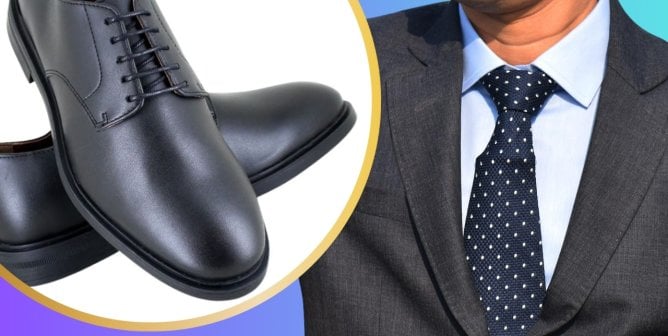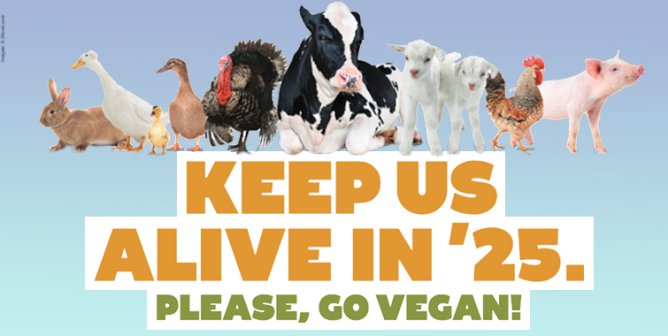Instead of wool, you can wear some of the many natural vegan fabrics that don’t involve punching and stomping on sheep. Recently, we’ve seen a surge of high-performing vegan fabrics that are the perfect combination of soft and sustainable.
More and more clothing brands are opting for these materials that don’t support the cruelty of the wool industry. Here are some of the natural vegan fabrics that you should be wearing:
1. Organic Cotton
Organic cotton is grown without harmful chemicals and doesn’t destroy ecosystems. In fact, it’s known to improve soil quality and often uses less water. Like other vegan fabrics, organic cotton is easier to clean than wool, faster drying, and softer to the touch. The Rosemarie Dress by Toad&Co is a blend of organic cotton and Tencel. (See number four for more details about Tencel, aka “lyocell.”)
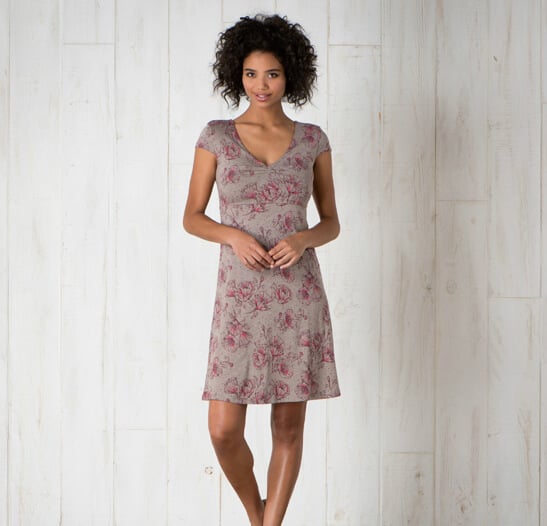
2. Linen
Linen is a durable material that becomes softer and stronger the more that it’s used. Vegan fabrics such as linen can absorb up to 20 percent of its weight in moisture before it feels damp. Unlike wool, which takes a long time to dry, linen easily releases moisture into the air, which keeps you cool. In addition, it is non-allergenic, requires considerably fewer pesticides and fertilizers than other crops, and is both recyclable and biodegradable. Abercrombie & Fitch’s cotton and Linen-Blend Single-Breasted Blazer is lightweight and features front pockets and button closure.
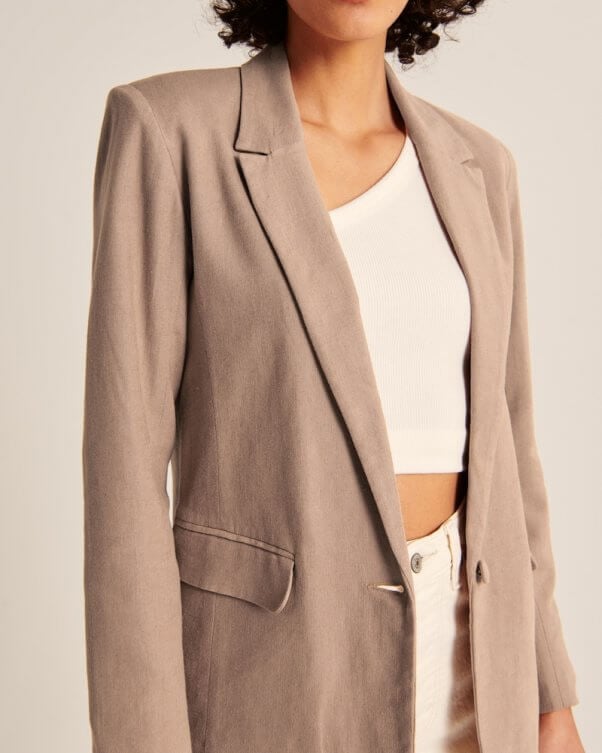
3. Seaweed
That’s right: seaweed! Dried seaweed is crushed coarsely, ground, and simultaneously introduced into cellulose fiber, from which materials for a wide variety of textiles, known as SeaCell, are manufactured. Brown algae used in this material supposedly activate cell regeneration, re-mineralize skin, limit inflammation, soothe itchiness (take that, itchy wool!) and detoxify the body. The porous structure of the SeaCell textile fibers promotes humidity intake and release, which keeps you warm in the winter and cool in the summer. We love this soft, comfortable ALSPRT Logo Tee by ALWRLD.
4. Wood
Lyocell is the general term for a material made from wood pulp that’s manufactured by means of an environmentally friendly process that reuses processing chemicals. It’s also biodegradable, recyclable, and naturally wrinkle-free. A great substitute for silk, Lycocell is soft, drapes well, and can be washed, dyed, and even woven to mimic the qualities of suede, leather, moleskin, or wool. Bed Bath & Beyond carries this soft Tencel Lyocell 500-Thread-Count Stripe Sheet Set, available in multiple colors.
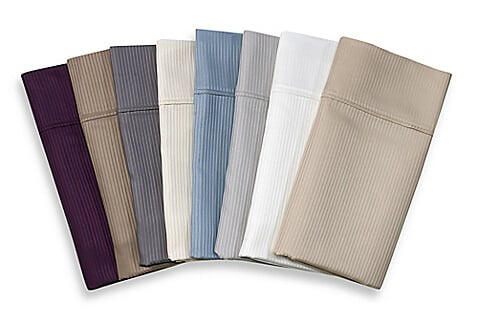
5. Beech Tree Fiber
Modal is a variety of rayon, made exclusively from the renewable fiber of beech trees. Since the base material comes from a natural source, rayon fibers such as modal are sometimes classified as a “natural synthetic.” Fabric made from modal is very soft and smooth, with a moderate to high sheen. The original “artificial silk,” it is soft, drapes well, and dyes easily. Unlike wool, it does not need to be ironed and retains its shape, size, and strength even after repeated washings. (Water structurally weakens wool.) Banana Republic’s modal Slub Long-Sleeve T-Shirt looks so cozy that you may want to wear it every day.
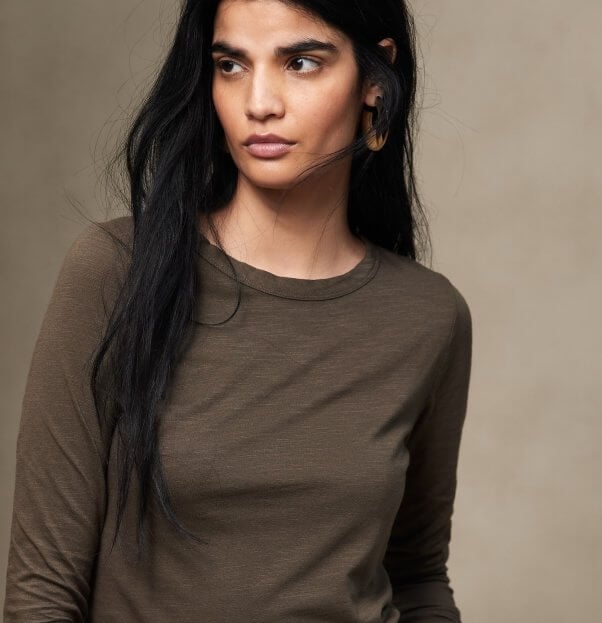
6. Hemp
Hemp grows without the use of pesticides or chemical fertilizers, making it ideal for organic farming. The plant’s roots can descend 3 feet or more into the ground, thereby anchoring and protecting soil from runoff while building and preserving topsoil and subsoil structures. Hemp is also completely biodegradable. It is similar to linen in feel and breathability, unlike wool, which traps heat and can support the growth of bacteria. WAMA Underwear uses hemp to make soft, sustainable underwear. Patagonia makes this Women’s Lightweight A/C Top from a blend of cotton and hemp crêpe.
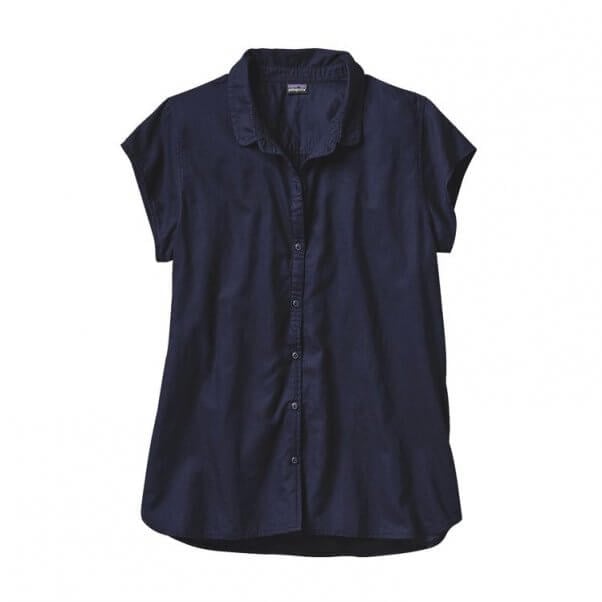
7. Soybeans
Soy fabric, also known as “vegetable cashmere” is a new eco-friendly fabric made from a byproduct of soybean processing. It has the softness and luster of silk, the drape and durability of cotton, and the warmth and comfort of cashmere. The material is free of any petrochemicals, and, most importantly, does not involve the abuse of sheep. Fashion insiders call the process in which materials come from the Earth and are wholly biodegradable a “cradle-to-cradle” approach. We appreciate KD New York’s cozy, flowing designs that are suitable for both work and yoga class! Check out this Unisex Pullover Hoodie.
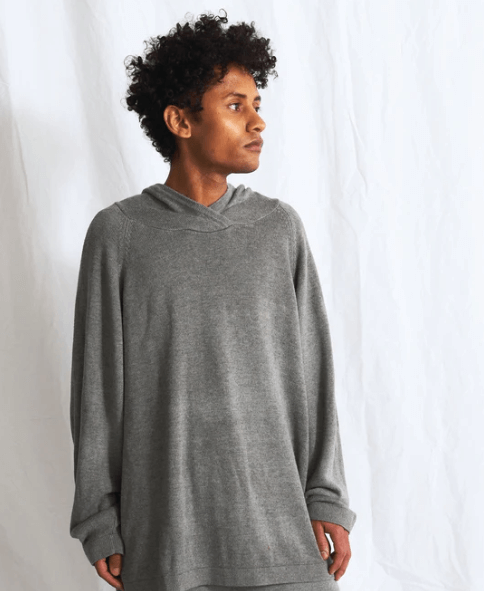
8. rPET
Another option is rPET, which stands for recycled polyethylene terephthalate. Also simply called “recycled polyester,” it’s a member of the polyester family and refers to the plastic bottles used for water and soda. When you put a bottle in the recycle bin, it may be turned into a polyester fiber of some kind or something else entirely. Unlike wool, it’s soft to the touch and won’t have you scratching your neck around the collar. It’s been suggested that synthetic microfibers may harm ecosystems, but the extent of the harm is largely unknown. Check out Patagonia’s Insulated Prairie Dawn Parka, which will keep you warm without any cruelty.
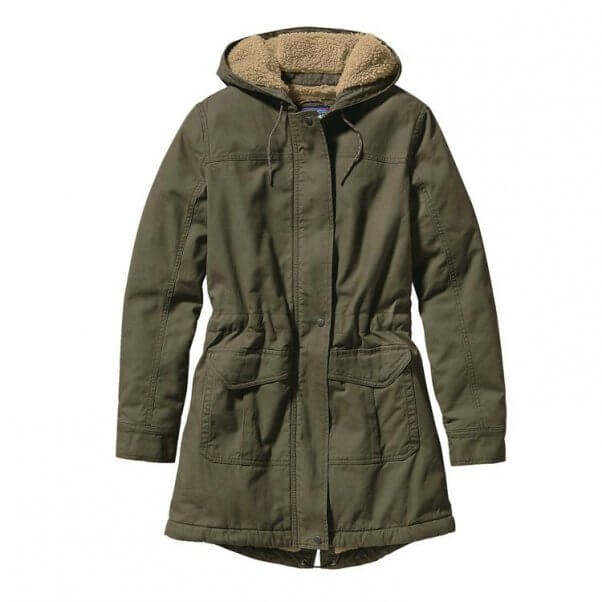
9. Coconut Fiber
If a company called Nanollose has its way, you’ll soon be able to buy warm, soft clothes made from coconuts. The company uses coconut fiber to produce material similar to rayon, which is conventionally made from trees. Aptly, the new fabric is called Nullarbor. It saves animals and spares trees, and its production requires minimal land, water, and energy use. (It’s doubtful that the clothes will smell like coconuts, but it would be wonderful if they did.)
Vegan fabrics represent the future of fashion. They’re versatile and environmentally sound and don’t involve cruelty to animals—which is increasingly viewed as unjustifiable. For more animal-friendly fashion, check out “How to Wear Vegan.”
Text VEG to 73822 to get the latest vegan lifestyle tips, recipes, and urgent action alerts texted right to your phone.
Terms for automated texts/calls from PETA: https://peta.vg/txt. Text STOP to end, HELP for more info. Msg/data rates may apply. U.S. only.




